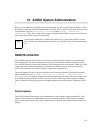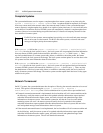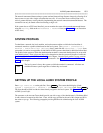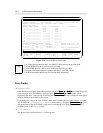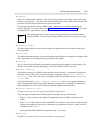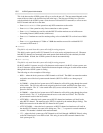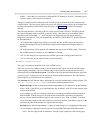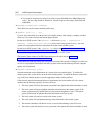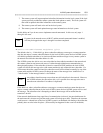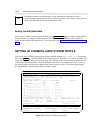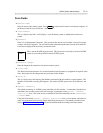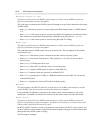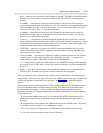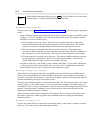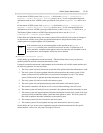13-8 AUDIX System Administration
________________________________________________________________________________________________
________________________________________________________________________________________________
________________________________________________________________________________________________
• You would be assigning an overlap if you tried to assign 5000-6999 when 2000-5999 already
exists. The new range would be disallowed. Instead, assign two new ranges (2000-5999 and
6000-6999).
• message transmission schedule
These fields are used for remote machine profiles only.
• updates (y/n)? in _ out _
For now, leave these fields set to n since this will simplify testing. After testing is complete, set these
fields to y if you want to activate the remote updates feature.
On the local AUDIX system, if the updates in field on the system : translation :
machine : audix/amis/call delivery form for the remote system is set to y, the local
system will accept updated data base information from that remote AUDIX system.
On the local AUDIX system, if the updates out field on the system : translation :
machine : audix/amis/call delivery form for the remote system is set to y, the local
system will send updated data base information to that remote AUDIX system.
The Remote Updates feature of AUDIX Networking must be active (see the system :
translation : remote updates form).
If these fields are left n after testing, this system will not notify other systems of changes to its data base
nor will it accept updated information from other systems in the network (neither partial nor complete
updates will be permitted).
• network turnaround (y/n)?
Network turnaround can be administered on a system-wide or per-machine basis. To disable this
feature system wide, set this field to n on the local machine profile. To enable the feature, set this field
to y on the local machine profile and on the appropriate remote machine profile(s).
If the network connection turnaround feature is implemented, the local machine will call a remote
machine and the following sequence of events will occur:
1. The local system will notify the remote system that it has updated subscriber information to send.
2. The local system will request updated subscriber information from the remote system (if the
remote system previously notified the local system that it had updates to send). The remote
system will then send its updated subscriber information to the local system.
3. The local system will send voice mail to the remote system.
4. The local system will send updated message status information to the remote system.
5. The network connection will then be turned around and the remaining events will occur:
6. The remote system will notify the local system that it has updated subscriber information to send.




